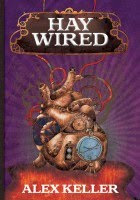by Alex Keller
I had never intended to study Archaeology at university. Despite telling people “I want to be an archaeologist,” whenever I was asked what I wanted to be when I grew up when I was much, much younger*, I had never set out to study the subject. When it came to picking my course at Exeter, what I really wanted to do was Ancient History. However, in order to gain a straight Ancient History degree, I would have had to study either Latin or ancient Greek. At this point in my life I was under the impression I was terrible at languages (being English), so in order to avoid certain failure, I opted to do a dual subject course degree, and chose Archaeology.
Off I went, and for the first year it was a pretty straightforward subject, barring the lecturer in “experimental archaeology”, whom we were fairly sure spent his weekends wandering Dartmoor in nothing more than a loin cloth and stone spear in the name of science. However, over the first summer holiday, we were expected to take part in some kind of Archaeology-related fieldwork to go towards our final degrees. Many people chose to do some work in a museum. I chose Bulgaria.
A few friends and I had heard that Nottingham University were running a training dig in Bulgaria uncovering Roman ruins. My friend Anton, a giant Swede and possibly one of the most decent people I have ever met, jumped at the chance as he had a fascination towards Rome that mirrored my dinosaur love when I was six, and as I had nothing better planned, I thought I'd come along too. It'll be different at least**. I'm not sure what I was expecting from this trip, but I can say in all honesty I was not prepared for what those five weeks would involve.
Part One: The Dig Itself
Field Archaeology, for those that have never caught an episode of Time Team, basically involves being stuck in a ditch scrabbling away in dirt/sand/bogs looking for anything that appears old. Essentially, you try to get into the least uncomfortable position possible, pick up your trusty towel, and get to it. This would be reasonably acceptable work during the average English summer, but in Bulgaria, it was another story.
Bulgaria at this time was experiencing a heatwave. The first thing that springs to mind when thinking back to this trip was that due to the hot weather, we had to get to the dig site as early as possible. Post 2pm, the heat was liable to knock you dead if you weren't careful. This danger was well highlighted when nearby fields would spontaneously set on fire.
At the time, we students were staying in a small village called Nikyup that consisted of three bars, a town square, and a large amount of farmyard animals with a poor grasp of personal space. Every morning, we forced ourselves to get up and stagger zombie-like through Nikyup's pot-holed streets to a waiting bus at 5:30am, where we would be driven for another half hour to the dig-site. For some, this daily ritual was almost tolerable. However, I am not a morning person. Ideally, any activity prior to midday is only done under the most extreme of circumstances***, and my natural routine was to rouse around ten, then enjoy a gentle snooze to build up my strength for that final push into wakefulness at exactly twelve-ish****. A five-thirty start was not easy.
Anyway, after a cold water face-wash and the morning fun of watching Anton fall asleep and wake up startled over and over and over as the bus trundled to its destination, we were awake enough to begin digging. The problem was: the staff who were meant to be guiding us didn't seem to have a clear idea of what it was we were meant to dig. For the first two weeks, after we had each been placed in small groups, we painstakingly cleaned away what we were told was the floor to a Roman supply base. Being excited and naïve (if sleepy), we set to work in complete faith that our leaders, being proper archaeologists, knew exactly what they were doing. Sadly, once these first couple of weeks passed, the veil was lifted and we learned they were not quite as on top of it as we students first thought. Essentially, we were told that what we had actually been agonising over was backfill*****. As you can imagine, we were not happy. They then gave us a pick-axe each and told us to dig down as fast as possible until we hit something interesting. Having spent so much time making the backfill look pretty and watching other groups uncover entire walls and other interesting things, we perhaps attacked the ground with rather more energy than was necessary.
For the final three weeks we got a fairly good understanding of the time it would take five people to dig a swimming pool had one of us wanted one. We shifted dirt like nobody's business, until we have uncovered walls of our own and even found a gold coin, the only one found at the site. This cheered us up no end.
To Be Continued...
*Unfortunately, because I had a serious obsession with dinosaurs and no one had told me what a palaeontologist was.
**Also, a girl I had a mild crush on was going as well, which sealed the deal.
***Like fire alarm drills and the occasional toilet run.
****This lifestyle was aided somewhat by being an arts student, where I would only need to attend six hours worth of lectures a week and most of them were thoughtfully timetabled for after lunch.
***** Most dig sites are not left open to the elements when people are not working on them. Once a team has finished for the year, the site is reburied in order to preserve it.
Alex Keller's first novel, Haywired, a Steampunk Fairy tale, will be published in September by Mogzilla.





1 comment:
"Experimental archaeology" sounds almost as bad as "postmodern history."
A great piece, all this Guest Beekeeping is turning up gems. I look forward to the next part...
Post a Comment